Is the United States heading for war with Iran?
- Published
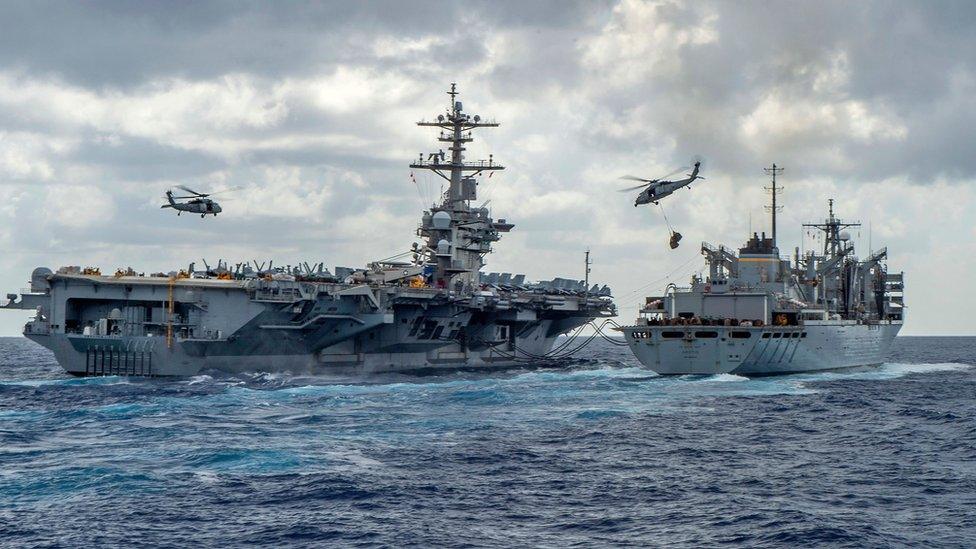
The US has deployed the aircraft carrier strike group to the Gulf
There are two competing narratives.
The first, which is favoured by US President Donald Trump's administration, is that Iran is up to no good. Preparations are said to have been seen for a potential attack on US targets, though few details have been revealed publicly.
The US has moved reinforcements to the region; it is reducing its non-essential diplomatic personnel in Iraq; and it is reportedly dusting off war plans.
The message to Tehran is clear: any attack on a US target from whatever source, be it Iran or one of its many proxies or allies in the region, will be met by a significant military response.
What's behind the rising tensions between the US and Iran?
The second narrative lays the blame for this crisis squarely at Washington's door.
Iran - not surprisingly - holds to this view, but so too do many domestic critics of the Trump administration's approach.
Indeed, to varying degrees many of Mr Trump's key European allies share some of these concerns.
According to this narrative, the "Iran hawks" in the Trump administration - people like National Security Adviser John Bolton, or Secretary of State Mike Pompeo - sense an opportunity.
Their goal, this narrative argues, is regime change in Tehran. And if maximum economic pressure does not work then they believe, military action is not ruled out in the appropriate circumstances.
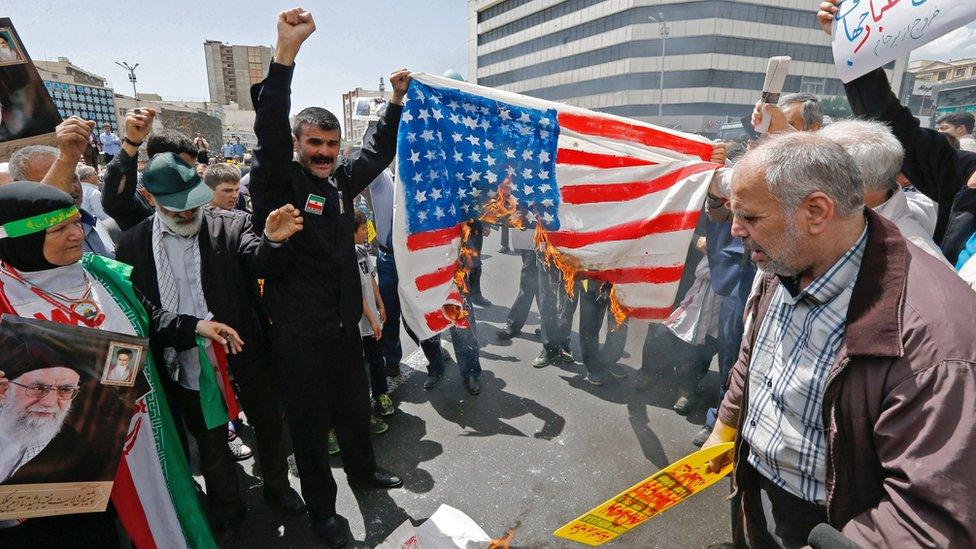
Reinstated US sanctions have pushed Iran's economy towards a deep recession
These two narratives reflect different interpretations of the reality and, as so often, they play up certain facts and ignore others to make their case.
But perceptions here matter just as much as reality. Indeed, in many ways they produce the reality.
And that reality is that a conflict between the US and Iran - albeit by accident rather than design - is more likely today than at any time since Mr Trump took office.
Tensions in the Middle East are certainly mounting.
Iran, its economy suffering from the re-imposition of US sanctions that were lifted under a 2015 nuclear accord with world powers, is pushing back.
It has warned that it may no longer abide by the restrictions on its nuclear activities.
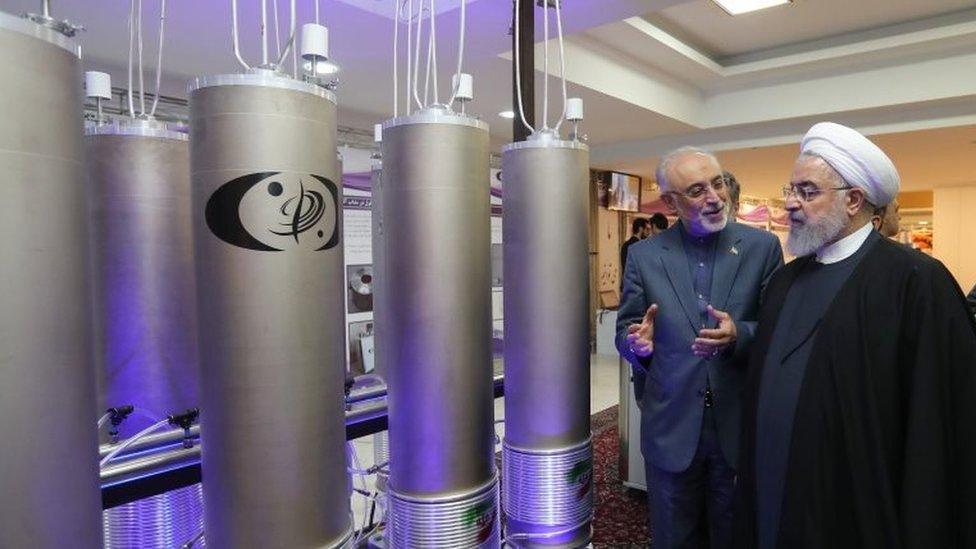
Iran's President, Hassan Rouhani, has said it does not want to pull out of the nuclear deal
The arrival of Mr Trump was a turning point.
The president pulled the US out of the nuclear deal a year ago and embarked upon a policy of maximum pressure against Tehran.
Iran has had enough. It is pushing the Europeans to do more to help its ailing economy and threatening if they do not - and it is hard to see what they can do - it will go ahead and breach the nuclear deal.
That would only give the Trump administration additional ammunition.
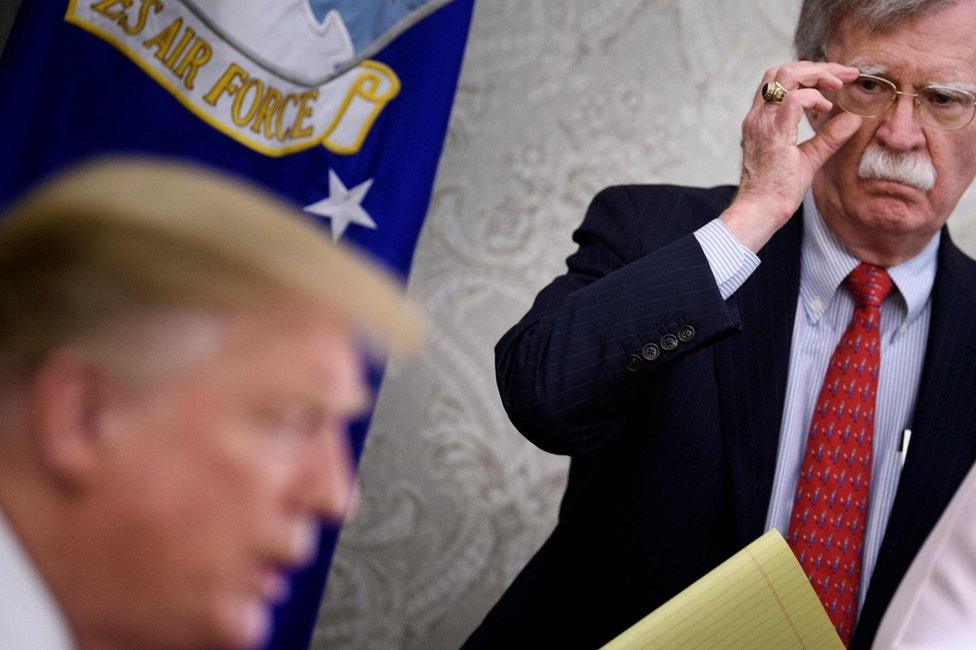
John Bolton, the US national security adviser, has long pushed for regime change in Iran
Much now depends upon the dynamics inside the Trump administration and also on Tehran's assessment of what is going on there.
The president himself has sought to play down the idea that his officials are divided regarding Iran, and reports indicate that he has little enthusiasm for war.
His opposition to military entanglements abroad is well-known. However Mr Trump is unlikely to back down if US forces or facilities are attacked.
However this is not necessarily the way things may be seen in Tehran.
Might Iran think that it can play off Mr Bolton against his boss; raising tensions enough for the national security adviser's perceived designs to be revealed perhaps precipitating his downfall?
If that is Tehran's assessment, then it is a high-risk strategy.
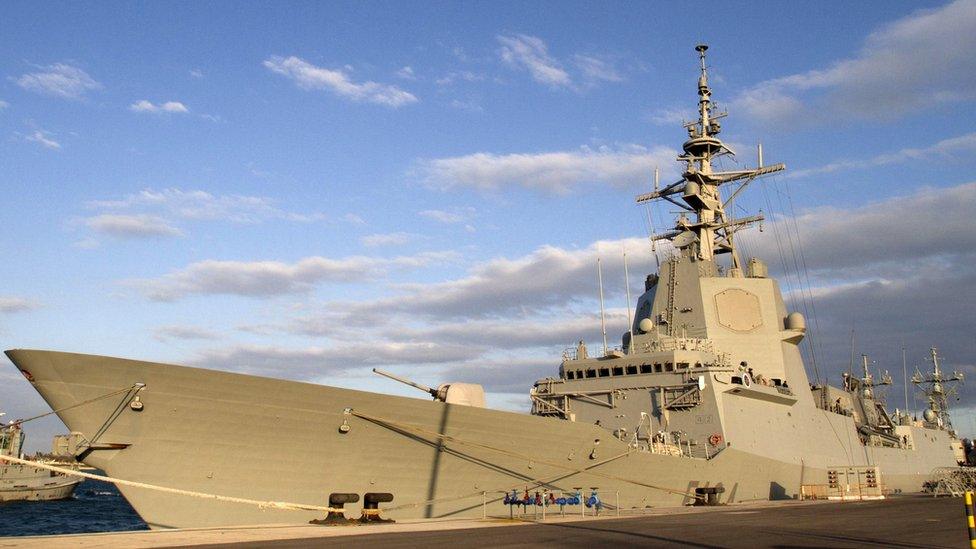
Spain withdrew a frigate from the US carrier strike group amid differences over Iran
While Washington's key Middle Eastern allies - Israel and Saudi Arabia - may be applauding from the sidelines, Mr Trump's European partners are uneasy at the way things are heading.
Spain, Germany and the Netherlands have all taken steps to suspend military activities in the region alongside the Americans, citing the rising tensions.
This is not the moment to rehearse what a conflict between Iran and the US would look like. But comparisons between such a conflict and the 2003 Iraq war are unhelpful.
Iran is a very different proposition to Saddam Hussein's Iraq.
A full-scale invasion of Iran is not going to be on the cards.
Rather, this would be an air and maritime conflict with a huge dose of asymmetry in Iran's responses. It could set the whole region ablaze.
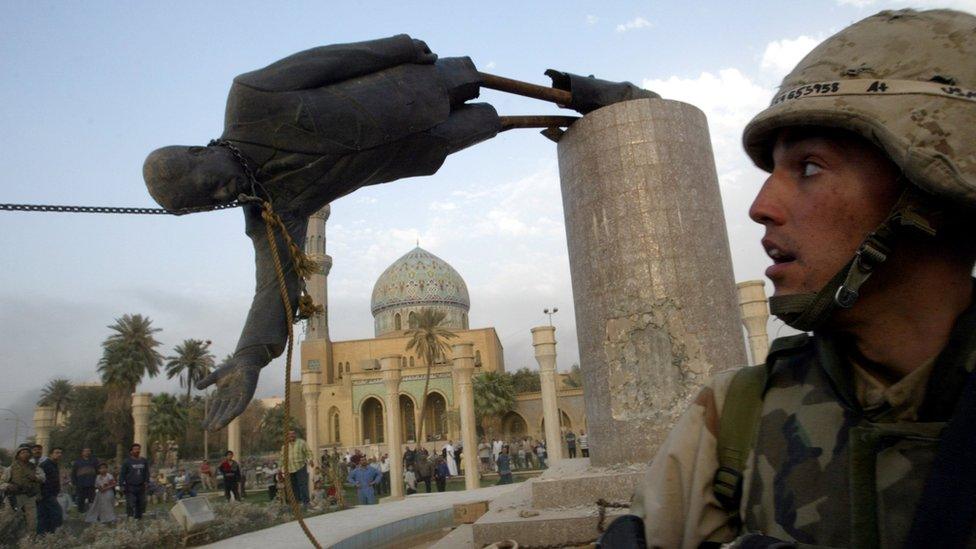
US-led forces invaded Iraq in 2003 and overthrew Saddam Hussein's regime
There were those who predicted a major foreign policy catastrophe when Mr Trump took office.
Instead, there is an unfolding and multi-dimensional crisis that has many elements and the Iran situation illustrates them all: an antipathy to international agreements; an over-reliance on regional allies with their own agendas to pursue; rising tensions with long-standing Nato partners; and, above all, an inability to determine and to prioritise Washington's real strategic interests.
With the revival of great power competition, when the US is seeking to re-orientate its deployments and to bolster its armed forces to face a rising China and an emboldened Russia, where should Iran rate in Washington's strategic priorities?
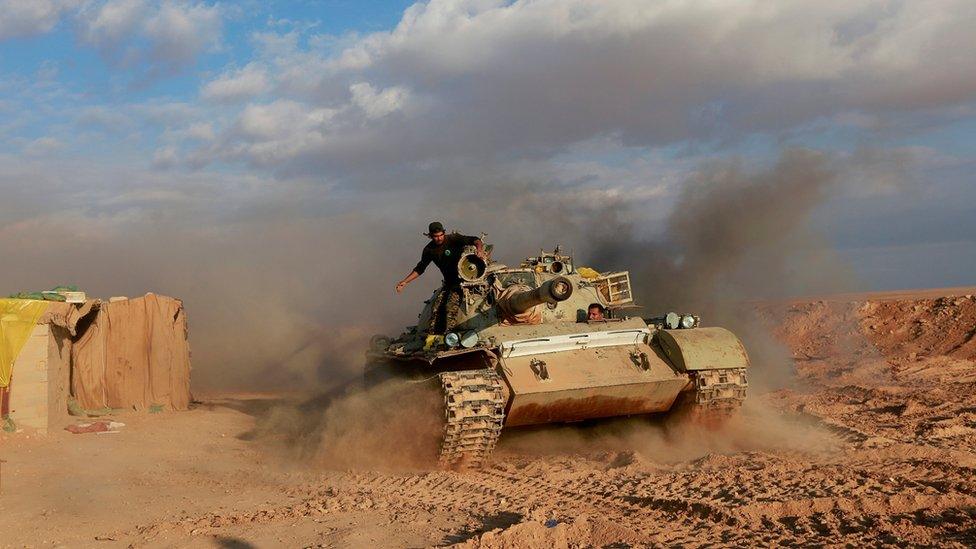
The US sees the thousands of Iran-backed Shia Muslim paramilitary fighters in Iraq as a threat
Does the Iran threat really merit a major conflict? Many US strategic pundits would say no.
Many accept that containing Tehran and, yes, threatening severe reprisals if US interests are attacked, may be necessary. But the steady drumbeat towards war is not.
And one thing should be clear. There is no "drift" towards war. That suggests an involuntary process that people can do little about.
If there is a conflict then it will be down to conscious decision-making, to the calculations and miscalculations of the Iranians and the Americans themselves.
- Published15 May 2019
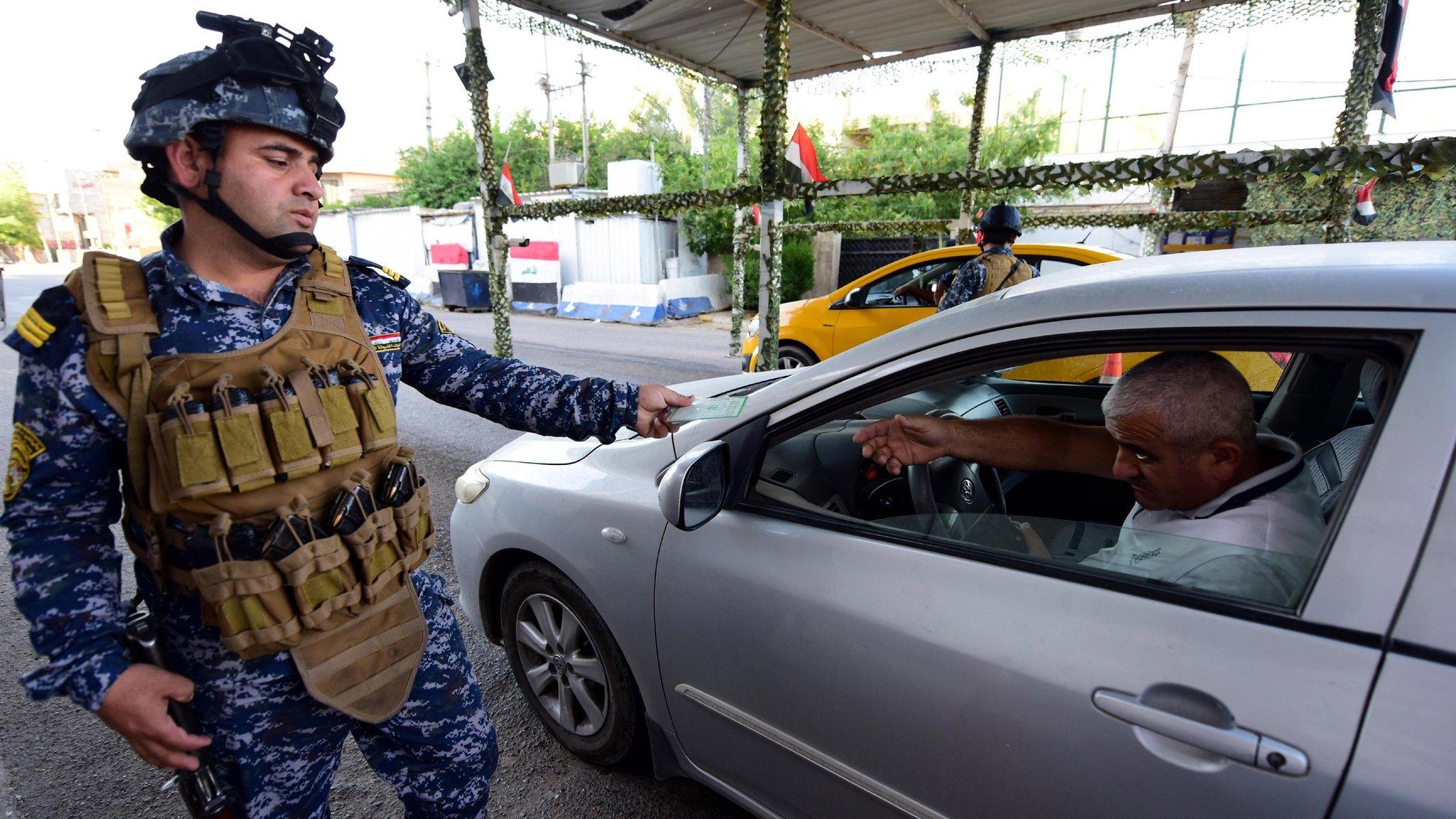
- Published14 May 2019
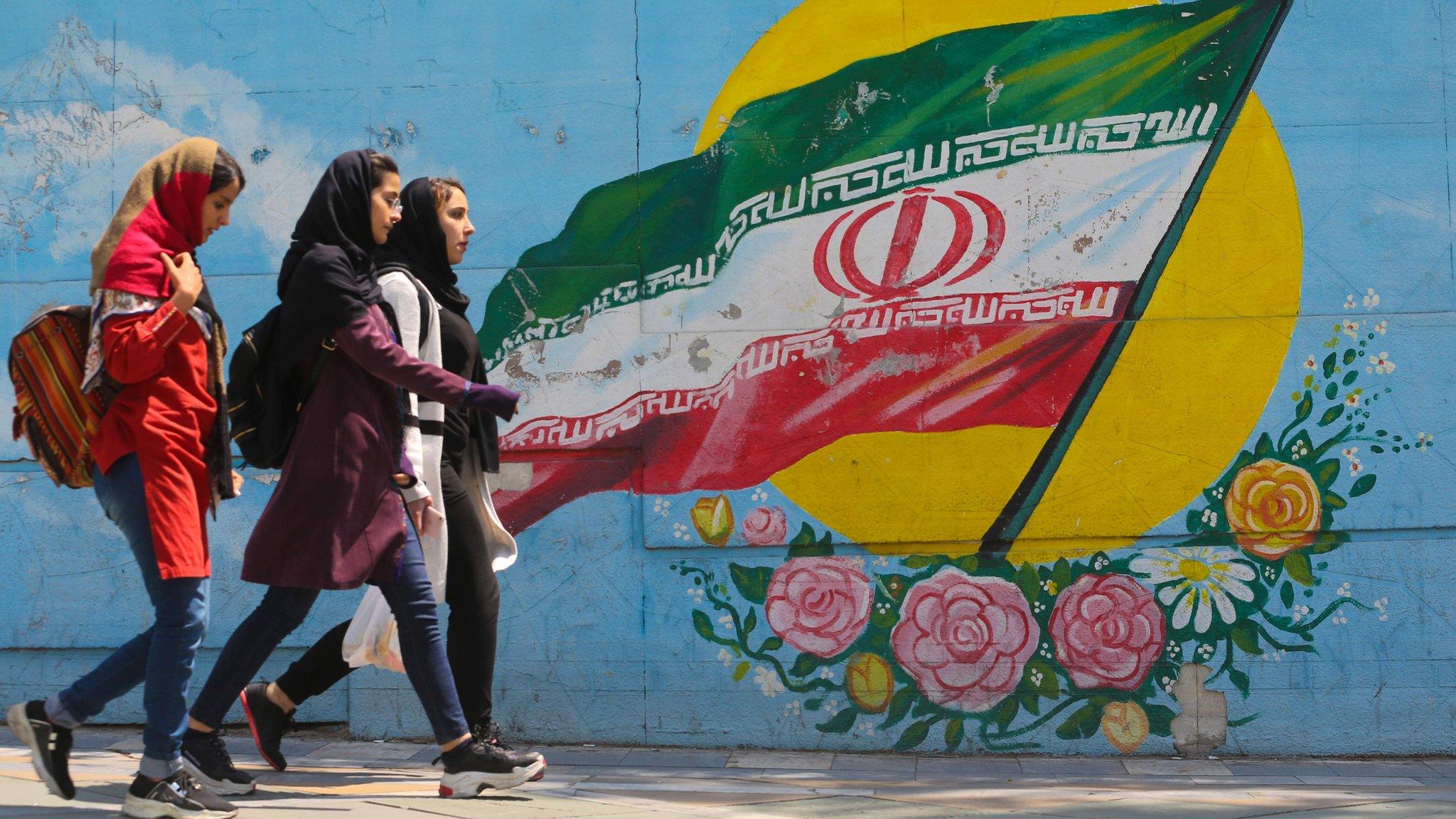
- Published14 May 2019

- Published14 May 2019

